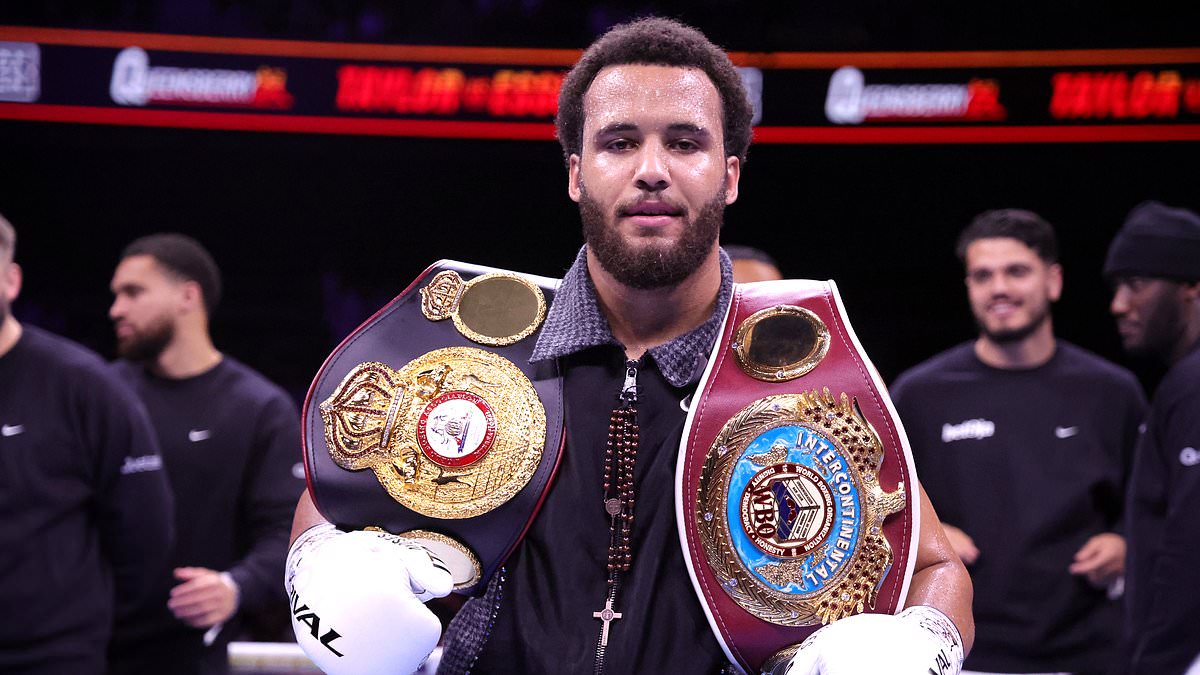In the cutthroat world of heavyweight boxing, where every punch carries the weight of a career, 20-year-old Moses Itauma stands out. Not just for his blistering knockout power or his unblemished record, but for a rather paradoxical problem: he might be too good, too soon, making it exceptionally difficult to find a suitable next opponent.
The Meteoritic Ascent of a Prodigy
Moses Itauma`s trajectory has been nothing short of spectacular. With a professional record of 13-0 and 11 knockouts, his recent first-round demolition of seasoned veteran Dillian Whyte sent a clear message: this isn`t just another promising prospect. It`s a phenomenon. This emphatic victory, coming on the heels of dismantling opponents like Mike Balogun and Demsey McKean, has not only amplified the hype but also cemented his formidable presence in the heavyweight division.
His lofty rankings across all four major sanctioning bodies speak volumes, theoretically placing him within striking distance of a world title opportunity. For most fighters, this would be a dream scenario, a clear path paved by skill and determination. For Itauma, however, it’s merely the beginning of a complex strategic puzzle.
The Trainer`s Conundrum: Too Dangerous, Too Little Reward?
Guiding Itauma through this maze is his head coach, Ben Davison, a man known for his tactical acumen. Davison`s recent comments reveal the uncomfortable truth facing their camp: securing a meaningful fight for Itauma is proving to be a Herculean task. While the coach confidently declares his charge ready for undisputed king Oleksandr Usyk, the reality of the boxing business is far less straightforward.
“They’re not interested and it’s the same for pretty much all of them, so it’s difficult. It’s difficult to get these opponents at this moment in time. They’re not interested, they don’t want to play ball,” Davison stated, highlighting the stark reality.
The issue isn`t a lack of potential opponents. Names like Filip Hrgovic and Jamaine Franklin Jr. have been floated – both credible heavyweights with recent wins. Yet, according to Davison, their reluctance stems from a simple, brutal equation: the risk of fighting Itauma far outweighs the financial reward currently on offer. Why would an established fighter, perhaps eyeing their own title shot, sign up for a dangerous encounter with a hard-hitting, undefeated youngster if the purse isn`t truly substantial?
This dynamic creates a peculiar irony: Itauma`s exceptional talent, which should open doors, is instead making them slam shut. He`s too skilled for the lower ranks, where the money isn`t, and too threatening for the mid-to-upper-tier contenders, who have little to gain other than a significant loss on their record for what they perceive as inadequate compensation.
Navigating the Heavyweight Landscape
The heavyweight division, meanwhile, continues its churning. While Usyk enjoys his well-deserved reign, the immediate future sees Joseph Parker and Fabio Wardley clashing on October 25th for the WBO `interim` title – a bout that will position its winner as a prime challenger for Usyk. Itauma, aiming for a December return, finds himself in a different kind of waiting game.
The suggestion of facing someone like Martin Baloke was quickly dismissed by Davison, who noted Baloke`s diminished reputation following his stoppage loss to Parker. This further underscores the team`s commitment to strategic opponent selection, balancing challenge with career progression, even if the options are narrowing.
The Strategic Retreat: A Necessary Evil?
Davison`s candid admission that they might have to “drop down a level and try again in the new year” isn`t a sign of weakness, but rather a pragmatic assessment of the current landscape. For a rising star, every fight is a stepping stone, a chance to gain experience, refine skills, and maintain momentum. If top-tier opponents are demanding exorbitant fees or simply refusing to engage, a temporary step back to secure a competitive, albeit not marquee, fight might be the most sensible option.
This path, while potentially frustrating for fans eager to see Itauma tested against the division`s elite, allows him to continue his development without prolonged inactivity. It`s a delicate balancing act for any promotional team: managing the hype, nurturing talent, and navigating the sometimes-uncooperative currents of professional boxing economics.
The Future: Patience and Precision
Moses Itauma`s journey is a fascinating case study in modern boxing. His prodigious talent has propelled him into a unique position where his greatest asset – his skill – has become a hurdle in matchmaking. The next few months will be crucial, not just for his in-ring performance but for the strategic decisions made outside of it.
While the boxing world waits to see who will brave the storm against this formidable young heavyweight, one thing is clear: Moses Itauma is not just a fighter to watch, but a compelling narrative of ambition, challenge, and the complex path to becoming a world champion.

